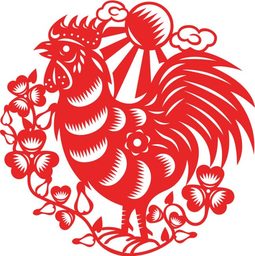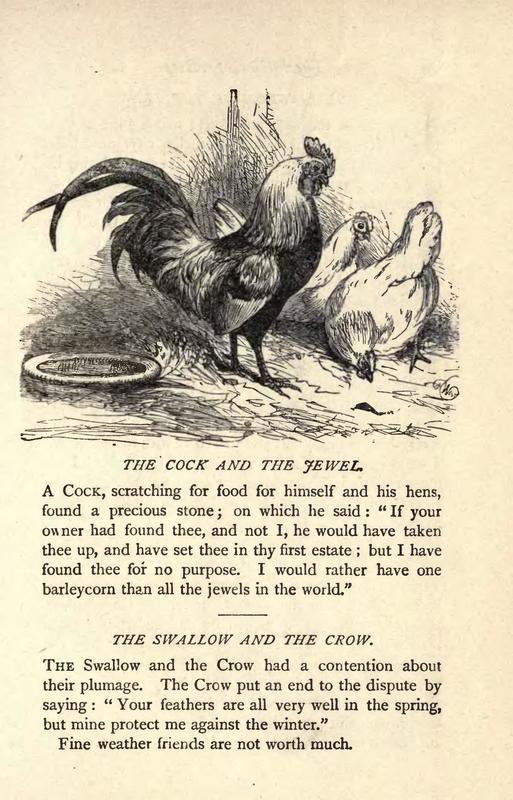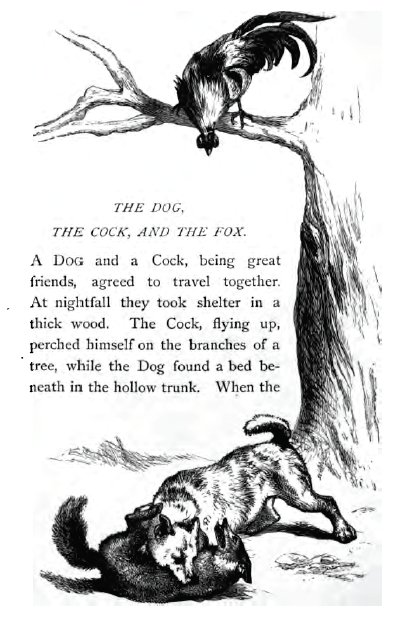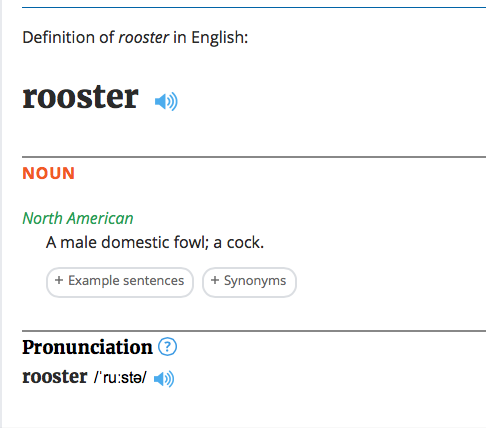|
We've now left behind the Year of the Monkey and launched into a new Lunar Year -- so let me (rather belatedly) wish all my readers of the Cygnet blog a healthy and prosperous Year of the Rooster ahead! Of the 12 animals that are zodiac signs and make up the 12 Chinese lunar years, the Rooster is perhaps the most unusual and interesting one from an English language point of view. Why? Well, as far as I am aware, none of the Chinese terms for animals in the zodiac are sex-specific -- information I gleaned from this article. As for the usual English names for the 12 zodiac animals, none of them are sex-specific either --- except for rooster! The eleven zodiac animals with usual English names that do not specifically indicate whether they are male and female are rat, ox, tiger, rabbit, dragon, snake, horse, goat, monkey, dog and pig. If we use any of these words, we do not communicate information about whether the animals are male or female. If we want to specify the sex of these animals, we have two choices in English: 1) In every case, we can just place the word 'male' or 'female' in front of the animal name: e.g. male rat, female snake, male goat, female pig etc. 2) In some (but not all) cases, English has extra vocabulary items available for specifically referring to the sex of the animal:
These more precise technical words are normally restricted to domestic or farm animals, and usually used only when there is a particular reason for referring specifically to one sex or the other. In ordinary speech most people would not refer to a female dog as a 'bitch' -- especially because the word also has an offensive meaning in English! (A quick note about the ox: the sexual status of this animal is rather ambiguous! An information source like Wikipedia will tell you that "oxen are commonly castrated adult male cattle: castration makes the animals easier to control. Cows (adult females) and bulls (intact males) may also be used in some areas." In other words, the word 'ox' may refer to males, females, or something in-between -- it is primarily referring to the type of work these animals do.) That leaves us with only one zodiac animal that is unequivocally male -- the rooster. English does have a word that includes both the male and female of this kind of bird, and that word is chicken. We don't call this the Year of the Chicken, however, because depictions of the Chinese zodiac animal appear clearly to show the male version of the chicken, not the female version -- as in the paper-cut at the start of this post. The male chicken and the female chicken look and behave quite differently, so English has separate words for each of them. And this is where things get interesting! In standard (British) English, we find the following general usage:
Here are some examples of this standard usage from two books of fables. So then -- why then do we call this the Year of the Rooster, and not the Year of the Cock? How is a rooster different from a cock? What does the word 'rooster' mean, and where is it used? Here is what you'll find if you type 'rooster' into the online Oxford English Dictionary: The key information is that it is 'North American' -- i.e. primarily used in the United States and Canada. The (British) Oxford Dictionary defines it simply as 'a cock'. In fact, the word rooster has completely replaced the word cock in the US, while in the UK the word rooster is seldom used or heard -- instead, the word cock is used. Why this split between British and American ways of talking about the male chicken? The answer seems to be a historical one. The early settlers in American in the 1600s were highly religious folk, and they were concerned about the alternative secondary meaning that the word cock had developed in English -- it was (and remains today) a slang term meaning penis. In short, the word rooster in America replaced the British word cock so that speakers could avoid using a word with an embarrassing double meaning! The almost universal use of 'Year of the Rooster' for the Chinese zodiac animal shows just how widespread is the influence of American English these days. But you don't have to look very far back into the history of Hong Kong under the British to find the traditional UK term in use. I'll finish with a headline from the Hongkong Standard of 1981 -- only 36 years ago. I think it's unlikely that you will have seen any mention of the 'Year of the Cock' in 2017 -- but let me know if you have!
0 Comments
Your comment will be posted after it is approved.
Leave a Reply. |
About this blogThis blog arises from keeping an eye on English in Hong Kong. I often use signs, notices and advertisements that I see as starting points to write about English issues that commonly challenge Hong Kong writers. Archives
October 2017
Categories
All
|






 RSS Feed
RSS Feed